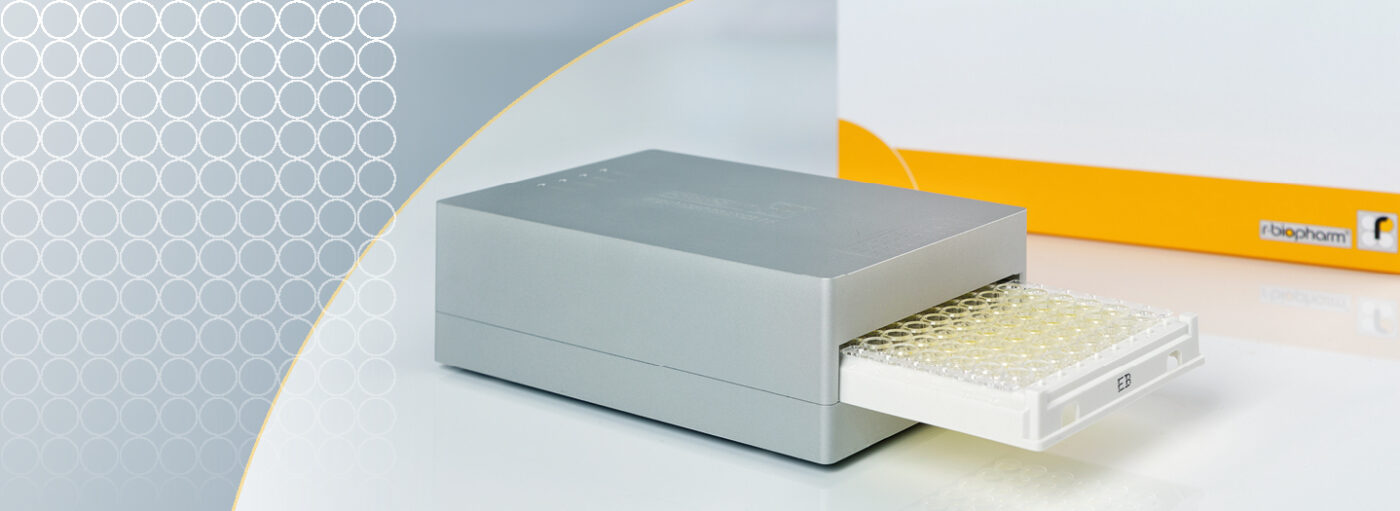
Recent news in Food & Feed Analysis
- Home
- /
- ELISA analysis: Which equipment...
ELISA analysis: Which equipment do you need?

ELISA is a test method with many advantages: it allows fast and specific quantitative analyses while being efficient and easy to perform. However, before a laboratory can start with ELISA, certain equipment is needed.
Depending on the test system used, various laboratory devices may be needed for ELISA processing. Usual equipment includes pipettes, a device for plate washing, an ELISA reader (photometer) and a computer with an evaluation software. Some test kits require further devices, such as an incubator for constant temperature during test implementation.
- Pipettes are part of the standard equipment of laboratories. In ELISA tests, they are used to transfer a precisely defined volume of a solution to the wells of the microtiter plate. Pipettes are available in various versions.
- The ELISA washer serves for washing of microtiter plates. After every incubation step (except the incubation with the substrate) the ELISA plate has to be washed with washing buffer. This is a crucial step to obtain high-precision results when performing ELISA tests.
- The ELISA reader also plays an essential role. This is a spectrophotometer which allows to measure the optical density (OD) and calculate the concentration of a sample. The high cost as well as the space and maintenance requirement is often an obstacle to starting with ELISA analysis, especially for small laboratories.
The modern ELISA reader: small, innovative and robust
https://www.youtube.com/watch?v=wqyeIHPu4hIThe new RIDA®ABSORBANCE 96 is a compact reader for ELISA plates. With a footprint of only about the size of a microtiter plate, it fits into every laboratory. Thanks to modern LED technology, it allows simultaneous measurement of all 96 cavities in only 5 seconds. Moreover, the device is largely maintenance-free, precise and robust and needs no additional power supply apart from the USB connection to the computer. The RIDA®ABSORBANCE 96 provides 4 different wavelengths and can be used with all RIDASCREEN® ELISA tests, both for food and feed analysis and for clinical diagnostics.
